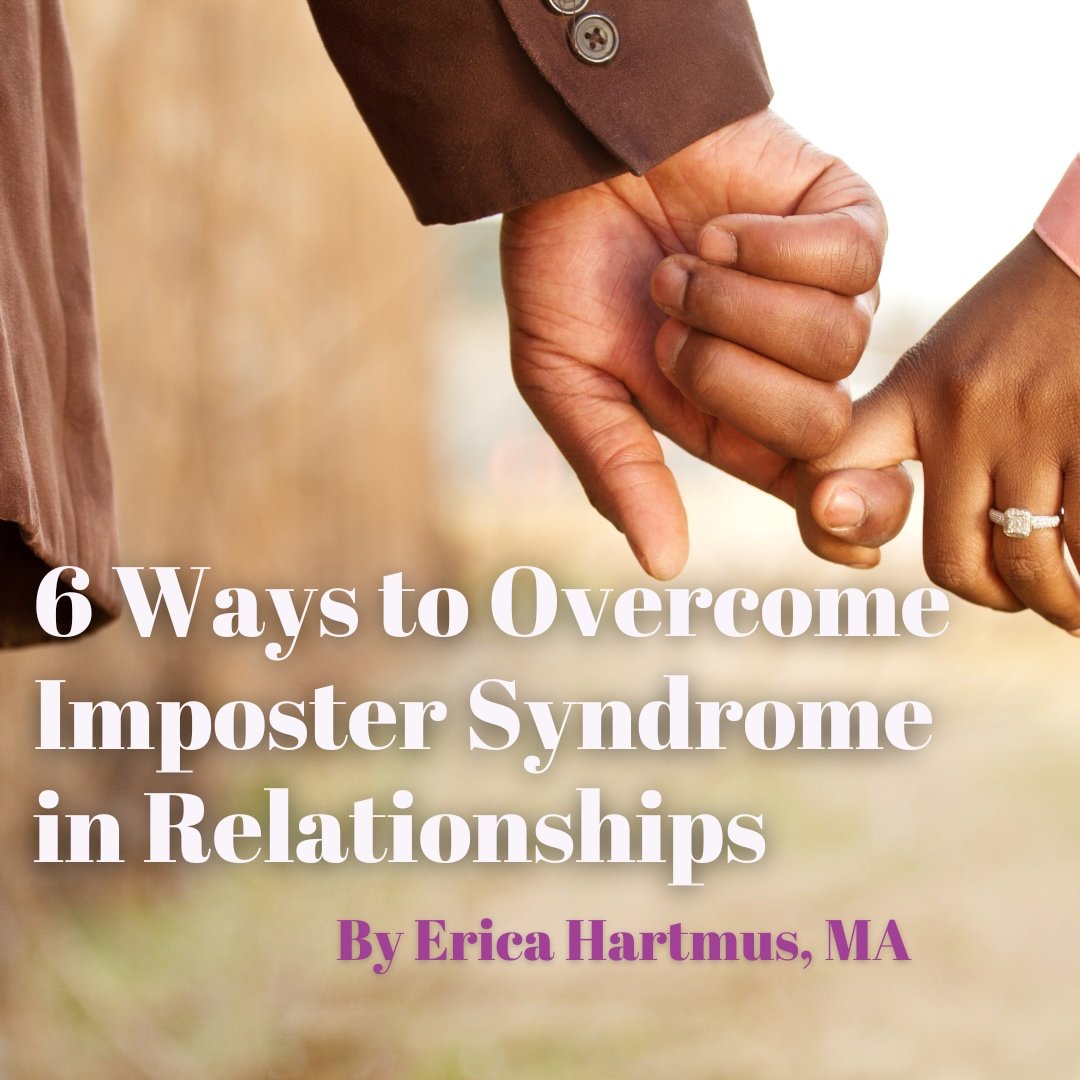6 Ways to Overcome Imposter Syndrome in Relationships
Do you often find yourself struggling to feel confident in your relationship, even when your partner offers constant reassurance? Have you ever questioned if you truly deserve the love and support you receive, or felt that your partner could find someone better?
If you’ve answered yes to any of these questions, you might be grappling with relationship imposter syndrome.
What is Imposter Syndrome?
Mostly talked about in professional settings, imposter syndrome describes a sense of inadequacy, or feeling like a fraud. In the workplace, it manifests as the fear that others may overestimate your abilities, or that you’ve somehow faked your way to your position. This anxiety can drive you to push yourself to work harder, or it can cause you to shrink yourself down out of fear of being “found out”. Similarly, in relationships, this feeling of not being good enough often stems from underlying anxiety, but at its core, it reflects a deep desire to be worthy of the love and commitment you receive from your partner.
These feelings of self-doubt can be particularly intense in intimate relationships, where the stakes feel higher and the emotional investment is deep. When you’re constantly questioning your worth or fearing that your partner might be settling for less, it can create a barrier to fully enjoying and embracing the connection you share.
Understanding that these feelings are a form of imposter syndrome can be the first step toward overcoming them. It’s important to recognize that these doubts do not reflect the reality of your relationship or your value as a partner. Instead, they often stem from internalized fears and insecurities that have little to do with your actual worthiness or the quality of your relationship.
How to Address Imposter Syndrome in Your Relationship
Acknowledge Your Feelings
Understand that imposter syndrome is a common experience. Acknowledge that these feelings are not a reflection of your worth but rather an internal struggle coming from a drive to be a good partner. It can also be helpful to identify the specific thoughts and insecurities that lend to your feelings of imposter syndrome in relationships. Are you worried you’re not a good enough partner, or has your partner done something to make you feel insecure? Recognizing the specifics of these thoughts can help when it comes to communicating them with your partner.
2. Communicate Openly
Talk to your partner about your feelings of inadequacy or self-doubt. Open communication can build trust and understanding, and you can specifically ask for reassurance. Often, your partner will want to help you in any way possible, and will be able to tell when something is off. Asking something as simple as “I’m feeling a little insecure right now, could you give me some reassurance?” can allow both of you to feel more at ease.
3. Challenge Negative Thoughts
Challenge your doubts by listing evidence of your strengths and positive attributes. Compare this with your negative self-perceptions. Don’t confuse negative self-talk with truth - often, we trick ourselves into believing that our feelings are facts.
4. Build Self-Awareness and Self-Esteem
You have much more to offer than just being a “good partner”. Take time to recognize your accomplishments and strengths. Identify what makes you you, and remind yourself of those qualities when you start to question your worth. Keep a journal to track positive feedback and achievements. Also, be kind to yourself. Recognize that everyone has flaws and makes mistakes, and this doesn’t diminish your worth. To help make this process easier, I’ve included a guided reflection exercise to follow along to!
5. Consider Therapy
Overcoming imposter syndrome is a common goal in therapy. Most therapists won’t just be able to help you; they’ll be able to relate to you! A therapist can help you explore your insecurities and work through ways to overcome them. Cognitive Behavioral Therapy (CBT) and Dialectical Behavioral Therapy (DBT) are particularly effective for addressing negative thought patterns connected to imposter syndrome.
6. Strengthen Your Relationship
Use the energy you’re saving by overcoming imposter syndrome and focus it on improving your connection to your partner. Spend time doing things you both enjoy, making new memories, and enjoying quality time with one another. These alone can reinforce feelings of connection and worthiness. Regularly express gratitude to your partner for their support and love. This can help reinforce positive feelings about your relationship and yourself.
In the end, acknowledging and working through these feelings can lead to a more authentic and fulfilling connection with your partner. By confronting the doubts and fears associated with imposter syndrome, you pave the way for a deeper understanding of yourself and a stronger, more resilient relationship.


